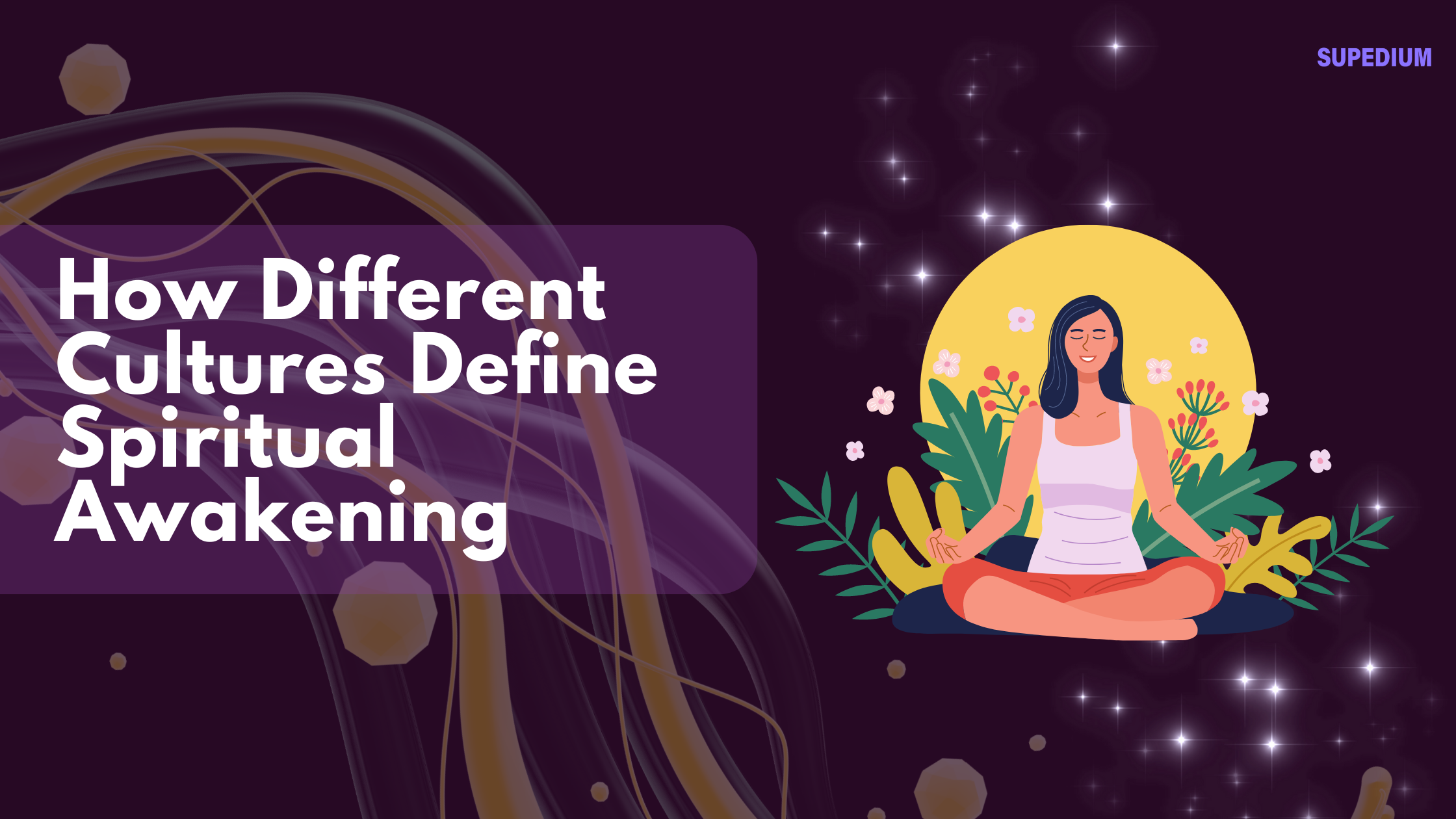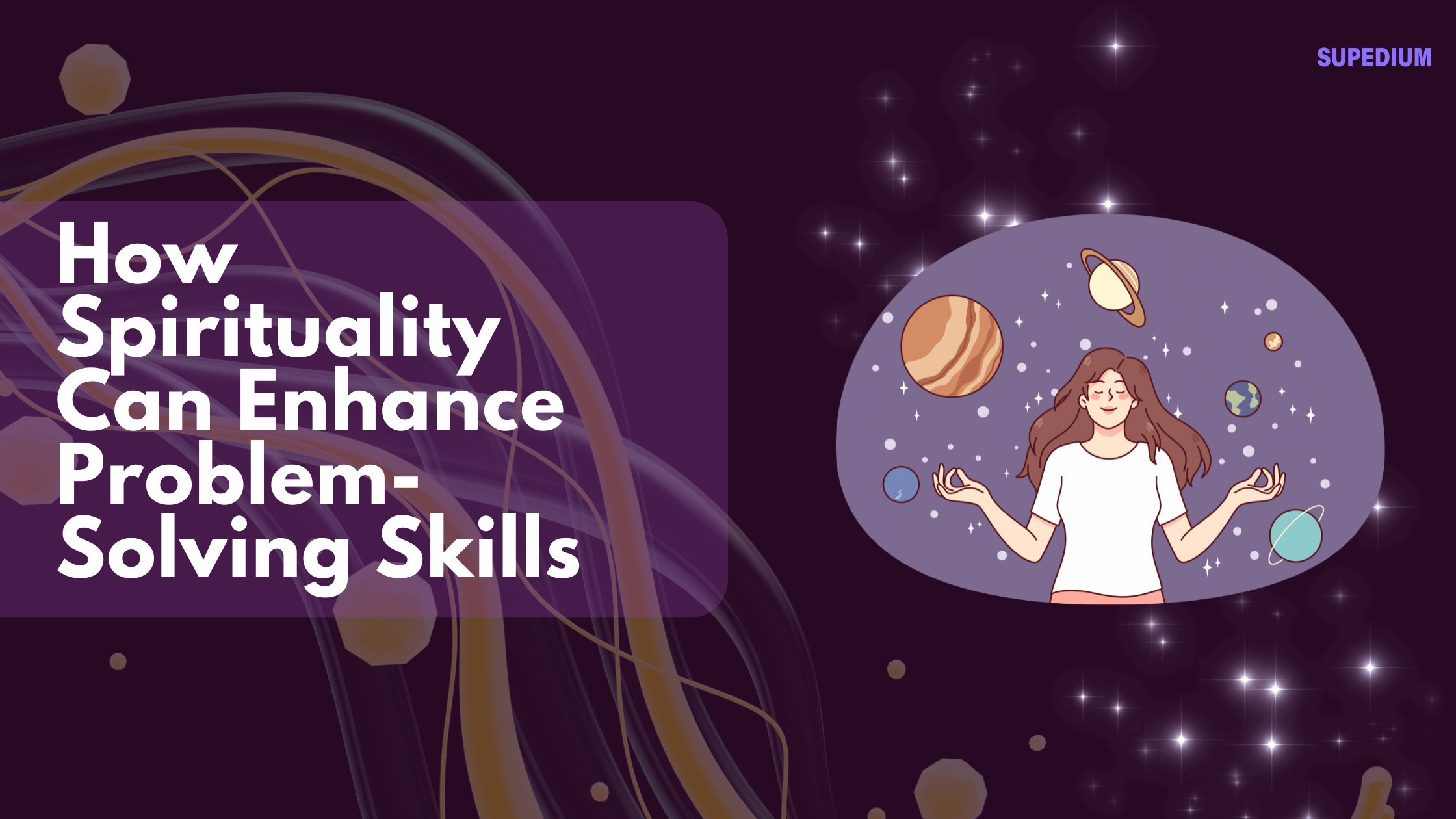Table of Contents
![]()
Introduction
Spiritual awakening is a profound and transformative experience that varies significantly across different cultures. At its core, spiritual awakening involves a deep realization of one’s inner self, a shift in perception, or an enhanced connection to the universe. Understanding how different cultures define and approach spiritual awakening offers valuable insights into the diverse ways humans seek meaning and enlightenment. This article explores spiritual awakening from various cultural perspectives, highlighting both commonalities and distinctions.
Spiritual Awakening in Eastern Cultures
Hinduism
In Hinduism, spiritual awakening is primarily associated with the concept of Moksha, which means liberation from the cycle of birth and rebirth (samsara). Moksha signifies the ultimate realization of the self (Atman) as one with Brahman, the supreme cosmic principle. This liberation is achieved through various paths, each tailored to individual temperaments and inclinations.
- Paths to Moksha:
- Jnana Yoga: The path of knowledge and wisdom, involving deep study and meditation on the nature of reality.
- Bhakti Yoga: The path of devotion and love towards a personal deity, fostering a close, loving relationship with the divine.
- Karma Yoga: The path of selfless action, focusing on performing one’s duties without attachment to the results.
These paths emphasize meditation, self-realization, and ethical living as means to achieve spiritual awakening.
Buddhism
In Buddhism, spiritual awakening is synonymous with reaching Enlightenment or Nirvana. This state represents the cessation of suffering and the end of the cycle of rebirth. Enlightenment involves a profound understanding of the nature of existence and the cessation of desires and attachments.
- The Four Noble Truths:
- Dukkha: The truth of suffering, acknowledging that suffering exists.
- Samudaya: The truth of the cause of suffering, which is craving and attachment.
- Nirodha: The truth of the end of suffering, achievable through the cessation of craving.
- Magga: The truth of the path leading to the end of suffering, known as the Eightfold Path.
- Practices for Awakening:
- Meditation and Mindfulness: Essential practices for gaining insight into the nature of reality and achieving mental clarity.
Taoism
Taoism presents a unique perspective on spiritual awakening through the concept of Wu Wei, or “non-action.” Wu Wei is not about inactivity but about aligning oneself with the natural flow of the Tao, the fundamental principle that underlies and unites all aspects of the universe.
- Harmony with the Tao:
- Spiritual awakening in Taoism involves living in accordance with the Tao, embracing simplicity, humility, and spontaneity.
- Practices for Awakening:
- Tai Chi: A form of movement and meditation that promotes physical and spiritual balance.
- Meditation: Practices that enhance one’s connection to the Tao and inner peace.
Spiritual Awakening in Western Cultures
Christianity
In Christianity, spiritual awakening is often referred to as being “born again.” This experience signifies a profound transformation through faith in Jesus Christ and acceptance of God’s grace.
- Rebirth and Grace:
- Faith and Grace: The belief in Jesus Christ as the savior and the experience of divine grace lead to spiritual renewal and a new way of living.
- Spiritual Practices:
- Prayer and Sacraments: Regular engagement in prayer, worship, and participation in sacraments such as baptism and communion facilitate spiritual growth.
Judaism
Judaism’s perspective on spiritual awakening is closely linked to ethical living and community service. The concept of Tikkun Olam, or “Repairing the World,” reflects a commitment to social justice and improving the human condition.
- Tikkun Olam:
- Ethical Living: The practice of living according to ethical principles and engaging in acts of kindness and justice.
- Mystical Traditions:
- Kabbalah: A mystical tradition within Judaism that explores the nature of God and the universe, offering insights into spiritual awakening through esoteric knowledge.
New Age Spirituality
New Age spirituality encompasses a broad range of beliefs and practices, focusing on self-realization and personal growth. It often incorporates elements from various traditions and modern psychological insights.
- Self-Realization:
- Emphasis on personal growth, self-discovery, and the development of spiritual awareness.
- Holistic Practices:
- Crystal Healing, Astrology: Practices aimed at enhancing spiritual well-being and understanding one’s place in the universe.
Spiritual Awakening in Indigenous Cultures
Native American Traditions
In many Native American cultures, spiritual awakening involves achieving harmony with nature and the spiritual realm. This connection is often facilitated through rituals and ceremonies.
- Harmony with Nature:
- Vision Quests: Spiritual journeys undertaken to seek guidance, personal insights, and a deeper connection with the spiritual world.
- Rituals and Ceremonies:
- Various ceremonies, including sweat lodges and dances, play a crucial role in fostering spiritual awakening and community cohesion.
Aboriginal Australian Cultures
Aboriginal Australian cultures emphasize the concept of Dreamtime, which represents the spiritual and mythical origins of the world.
- Dreamtime and Ancestral Connection:
- Storytelling: Through Dreamtime stories, individuals connect with ancestral beings and understand their place within the world.
- Land Connection:
- The land is seen as sacred and integral to spiritual identity, with rituals and practices deeply rooted in the natural environment.
African Traditional Religions
In many African traditional religions, spiritual awakening involves engaging with ancestral spirits and the community.
- Ancestor Worship:
- Community Spirit: Ancestral reverence and communal rituals play a central role in spiritual life, emphasizing the interconnectedness of individuals and their ancestors.
- Rituals and Community Involvement:
- Various rituals and communal activities foster spiritual growth and maintain cultural continuity.
Contemporary Perspectives on Spiritual Awakening
Globalization and Cross-Cultural Exchange
The global exchange of spiritual practices has led to a fusion of traditional and modern approaches to spiritual awakening. This cross-cultural interaction has enriched individual experiences and broadened perspectives.
Modern Psychology and Spirituality
Modern psychology offers insights into spiritual awakening through frameworks such as Jungian psychology and transpersonal psychology, which explore the integration of spiritual experiences with psychological well-being.
- Psychological Perspectives:
- Transpersonal Psychology: Examines spiritual experiences and their impact on personal growth and mental health.
- Integration of Practices:
- The incorporation of spiritual practices into psychological therapy aims to enhance overall well-being and self-understanding.
Comparative Analysis
Common Themes
Across cultures, spiritual awakening often involves a search for deeper meaning, self-realization, and a connection to something greater than oneself. Practices and rituals play a crucial role in facilitating this transformative experience.
Divergences
Cultural differences in the conceptual frameworks of spiritual awakening highlight diverse approaches and goals. While some cultures focus on liberation from the cycle of rebirth, others emphasize ethical living, community involvement, or harmony with nature.
Conclusion
Understanding how different cultures define spiritual awakening provides valuable insights into the myriad ways humans seek enlightenment and meaning. By exploring these diverse perspectives, we gain a deeper appreciation for the universal quest for spiritual fulfillment and the rich tapestry of human experience.
Share This





Be the first to comment